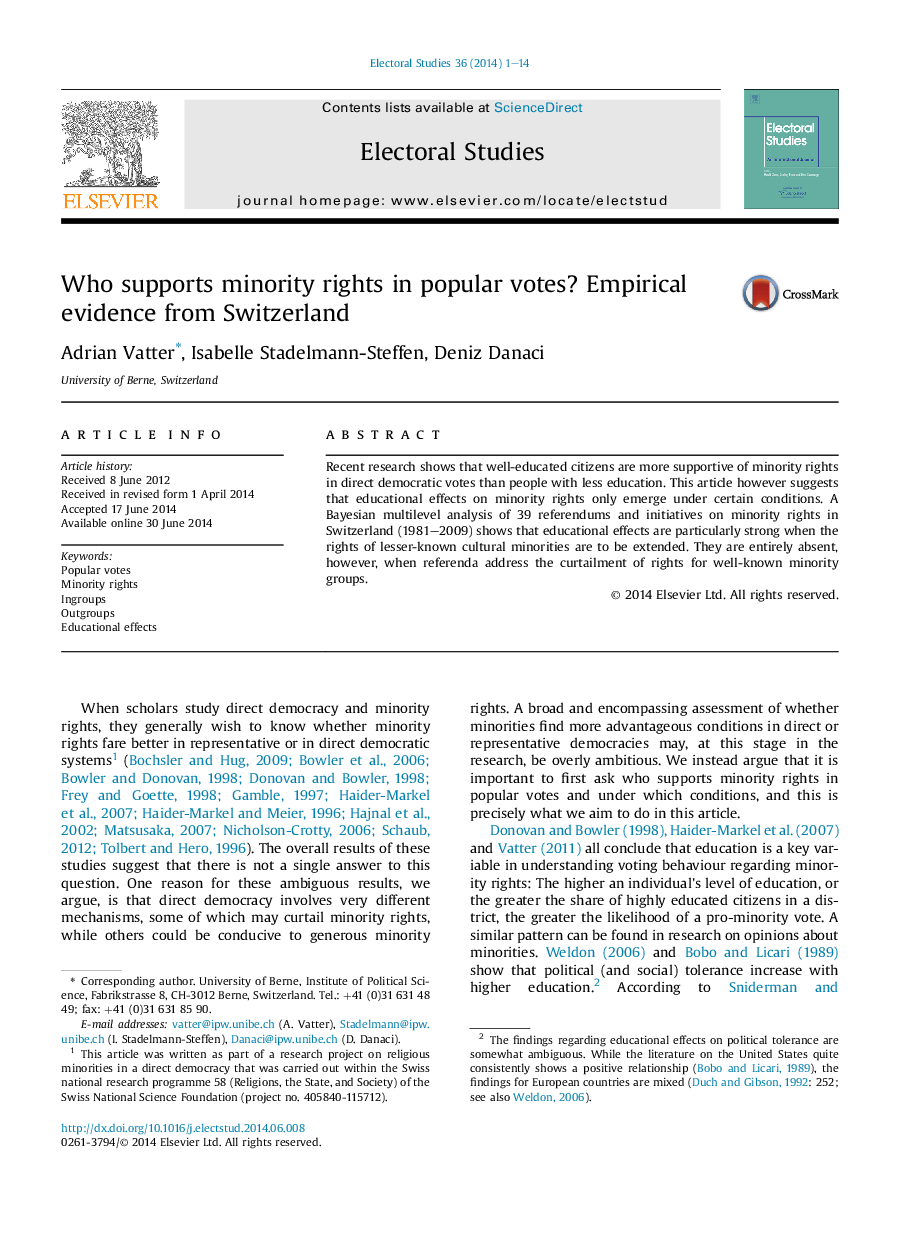| Article ID | Journal | Published Year | Pages | File Type |
|---|---|---|---|---|
| 7464211 | Electoral Studies | 2014 | 14 Pages |
Abstract
Recent research shows that well-educated citizens are more supportive of minority rights in direct democratic votes than people with less education. This article however suggests that educational effects on minority rights only emerge under certain conditions. A Bayesian multilevel analysis of 39 referendums and initiatives on minority rights in Switzerland (1981-2009) shows that educational effects are particularly strong when the rights of lesser-known cultural minorities are to be extended. They are entirely absent, however, when referenda address the curtailment of rights for well-known minority groups.
Keywords
Related Topics
Social Sciences and Humanities
Social Sciences
Geography, Planning and Development
Authors
Adrian Vatter, Isabelle Stadelmann-Steffen, Deniz Danaci,
